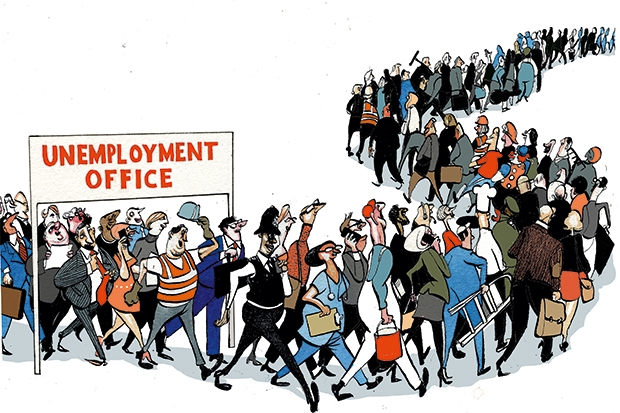David Cameron realised rather late on that the job miracle, rather than George Osborne’s dubious claims about deficit reduction, was the main economic boast of the last few years. And rightly: he is the first Prime Minister in the history of these islands to have presided over the creation of 1,000 jobs a day.

His detractors argue that this numbers thing is simply a function of immigration. That of the 2 million jobs he boasted about creating, 1m of them are foreign-born workers. This is broadly correct (below).

But let’s look at unemployment as a share of the workforce. This time last year, where did the economic forecasters think it would go? The answer comes in the blue and yellow lines. The thick red line shows what the UK economy actually did. So – and this really is extraordinary – UK unemployment is already lower than the IMF thought it would be in 2018.

And why did they get it wrong? Not because they’re idiots or charlatans – they were just using old models and formulas. Wages have been lower than forecast; if workers are cheaper companies can afford more of them. But something more is afoot. In the old days, X amount of economic growth would get you Y new jobs. But this X/Y ratio has been changed, due to job-creating government policy. The UK workforce (i.e., people looking for work) has expanded far faster than the UK population. Low taxes are increasing the incentive for people to find work, and welfare reform is helping them do so.
Progress ended up being made far faster than the government could keep up with it. So milestones were reached without anyone in Cameron’s office being aware, far less being able to boast about it. Any day now, the number of weekly hours worked in the economy will pass one billion (below) – and when it does, I bet no one in government thinks to make the point. They’re still not across this.

All this is, in part, a problem with long-term planning: Osborne always intended to fight this election on the deficit (where progress has been abysmal) and put this atop the party’s lists of boasts which were literally written on the wall of CCHQ before the extent of the jobs miracle was clear. He did so when the IMF and others were expecting us to take three years to make the progress that was, in the end, made in a matter of months. Back in January, Osborne tried to bend the facts to fit his narrative – wrongly claiming that he had halved the deficit. Soon, this claim was dropped and jobs rightly put in its placed.
The conclusion is one that I hope Osborne takes to heart, because I suspect even he didn’t quite understand the potency of the reforms he was making or what it would do to the labour market. If you cut tax for employers and employees while applying radical welfare reform, a jobs surge will result. The Conservatives’ next mission is to make sure the new jobs, especially at the lower end of the pay scale where they are concentrated, pay decent wages.
UPDATE And for those asking, the jobs miracle is not an illusion created by zero hours contracts. Most of the jobs are full-time. Breakdown below.








Comments